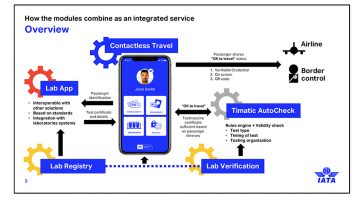
Chinese president Xi Jinping has called on world leaders to step up cooperation to contain the pandemic, including via the development of a universal QR health code.
The two-day G20 virtual summit last weekend saw 19 countries and the European Union come together to discuss a variety of issues, including vaccines, economic stability, and the reopening of borders amidst the worsening Covid-19 situation.
In a speech, Xi urged countries to play a part in helping international borders safely reopen.
“We need to further harmonise policies and standards and establish ‘fast tracks’ to facilitate the orderly flow of personnel,” said Xi, according to Xinhua. “China has proposed a global mechanism on the mutual recognition of health certificates based on nucleic acid test results in the form of internationally accepted QR codes. We hope more countries will join this mechanism.”
Since February, Chinese citizens have been required to present QR health codes to enter public venues, according to Reuters. Similar systems have since popped up in countries such as Russia, Japan, and Singapore, but a cross-border solution has yet to be seen.
However, critics warn that a global QR code could infringe on personal privacy.
Kenneth Roth, executive director at Human Rights Watch, said in a tweet that the “initial focus on health could easily become a Trojan Horse for broader political monitoring and exclusion”, referencing China’s controversial social credit system.
China’s push for harmonised standards and verification technology comes amid a race by the travel industry to create a universal digital health pass. The system streamlines international travel by helping airlines verify health documentation and entry eligibility for the destination.












